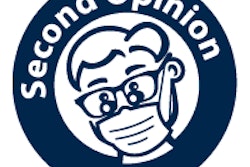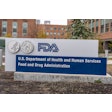
In the first of a two-part series, partners and associates from the law firm McGuireWoods detail the advantages to practicing dentists of a dental support organization. In this column, they discuss the focus on patient care, serving underserved markets, and regulatory compliance.
Despite facing more than its fair share of scrutiny from state regulators, the dental support organization (DSO) business model continues to thrive and grow, in large measure because of the tangible benefits it offers to dental practices in managing their day-to-day business operations. As the practice of dentistry (like healthcare at large) becomes a more challenging business, it is less common that dentists have the desire or resources to effectively operate both the clinical and back-office functions of their practices. Given changes in the market, increased competition and payor contracting challenges, dentists are increasingly turning to professional DSOs to help them thrive in a difficult environment. The following is an analysis of the key business and regulatory advantages that dental practices may gain by affiliating with a DSO.
“Given changes in the market, increased competition and payor contracting challenges, dentists are increasingly turning to professional DSOs to help them thrive.”
Allows dentists to focus on patient care
DSOs free dentists from business problems and allow them more time and resources to focus on superior patient care. DSOs assist dentists with the nonclinical business and administrative functions of a dental practice, including accounting and billing, human resources, compliance, information technology, marketing, and equipment and facilities maintenance. Quality patient care leads to fewer procedures per patient and can reduce healthcare costs. For example, a 2011 study by Laffer Associates on Texas Medicaid dental patients found that the average non-DSO patient had 12.39 procedures per year, while an average DSO patient had an average of 10.15 procedures annually, suggesting DSO patients receive higher quality care, resulting in few procedures per patient.
Brings dental services to underserved markets
Former Surgeon General David Satcher, MD, PhD, identified oral diseases as a silent epidemic that affects our country's most vulnerable citizens, including poor children, the elderly, and racial and ethnic minorities. According to a 2010 Pew Center study, 17 million low-income U.S. children go without dental care each year, or 1 out of every 5 children between the ages of 1 and 18. The DSO business model reduces operating costs, giving dentists an opportunity to extend care to these underserved populations. For example, Great Expressions Dental Centers (GEDC), a DSO operating in nine states, is a continuous supporter of St. Vincent de Paul's clinic in urban Detroit, through which it provides preventive dental care, extractions, and fillings to more than 2,000 underserved patients annually. Through its partnership with the clinic, GEDC also provides dental equipment, dental and procedural supplies, and regular dental volunteers.
Midwest Dental, a DSO operating in six Midwestern states, also frequently participates in outreach activities that provide affordable or free care. On February 1, 2013, Midwest Dental participated in its eighth Give Kids A Smile day sponsored by the ADA. During the daylong event, 63 Midwest Dental dentists provided more than $200,000 in free dental care to more than 600 underprivileged children. These are but a few examples of how DSOs benefit their communities nationwide.
Standardizing and monitoring regulatory compliance
DSOs also play a pivotal role in ensuring a "culture of compliance" in the dental industry. They assist with the creation and implementation of standardized policies and procedures, while taking an active role in monitoring the operations of the practices. DSOs further leverage their relationships with regulatory experts to provide their dental practices with effective guidance for complex situations. One of the leaders in promoting robust compliance standards for dental practices has been the Association of Dental Support Organizations (ADSO).
ADSO's Code of Ethics provides standard compliance obligations that each DSO member organization must follow to maintain membership. The code requires all ADSO members to act with integrity by refraining from actions that may damage the credibility of the DSO community. It mandates compliance with all applicable federal, state, and local laws. Other provisions focus on how ADSO members should provide administrative services and employee support to dentists, as well as ensure that ADSO members do not interfere with dentists' clinical decisions and patient treatment.
Further, the code promotes self-regulation by requiring each ADSO member to designate an ADSO ethics officer (DEO) to facilitate compliance, including educating dentists and employees. Annually, ADSO members must attest that they have designated a DEO and that they have complied with the code. Finally, each ADSO member must promptly investigate any internal or external complaint against the DSO and take corrective action as appropriate.
ADSO administers and enforces the code through the board of directors' Ethics Committee. The committee reviews complaints and determines all charges against ADSO members, while offering the ADSO members opportunities to be heard on any allegations. After due process is complete, if the committee finds a violation, it will recommend actions to the board of directors that range from termination of the ADSO member to a requirement that the member submit a written report attesting to future compliance with the code, including a promise to conduct due diligence to ensure that actions that caused the complaint do not recur.
Part 2 of the series will discuss technology, capital, and best practices.
McGuireWoods is the eighth largest healthcare practice in the U.S., according to the American Health Lawyers Association in its annual Top Honors rankings. For more information, visit www.mcguirewoods.com.
The comments and observations expressed herein do not necessarily reflect the opinions of DrBicuspid.com, nor should they be construed as an endorsement or admonishment of any particular idea, vendor, or organization.



















